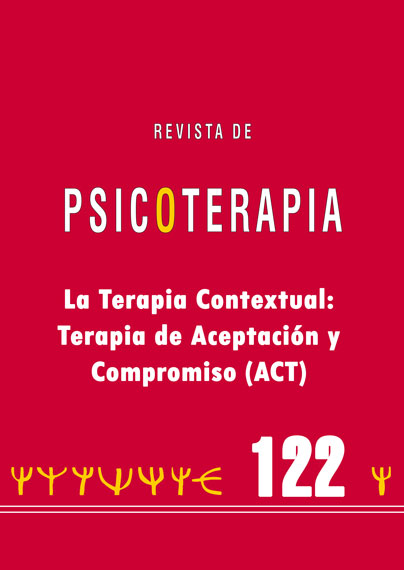La alianza terapéutica en la terapia de aceptación y compromiso
DOI:
https://doi.org/10.33898/rdp.v33i122.1145Palabras clave:
alianza terapéutica, relación terapéutica, terapia de aceptación y compromisoResumen
La Terapia de Aceptación y Compromiso (ACT) es una intervención basada en procesos que promueve la flexibilidad psicológica implementando seis procesos centrales. Estos incluyen aceptación y conciencia como también procesos de valores y cambio conductuales. Sin embargo, el vehículo primario para implementar estas intervenciones es la relación terapéutica. En este trabajo discutimos que la Alianza Terapéutica (TA) es co-creada y es un factor crítico que contribuye a la efectividad de la implementación de ACT. Este artículo se enfoca en la TA como una parte vital del tratamiento ACT. Desarrollamos la alianza terapéutica desde la perspectiva de ACT, exploramos los diferentes roles que ocupa en la implementación de ACT y concluimos con un ejemplo clínico. Mas específicamente mostramos cómo la alianza terapéutica y la relación terapéutica pueden ser un vehículo de cambio en ACT.
Descargas
Descargas
Publicado
Cómo citar
Número
Sección
Licencia
Los autores/as que publiquen en esta revista aceptan las siguientes condiciones:
- Los autores/as conservan los derechos de autor y ceden a la revista el derecho de la primera publicación, con el trabajo registrado con la Creative Commons CC-BY-NC 4.0 Internacional, que permite a terceros citar el texto y usarlo sin alterarlo y sin beneficio económico, siempre que mencionen la autoría del trabajo y la primera publicación en esta revista.
- Los autores/as pueden realizar otros acuerdos contractuales independientes y adicionales para la distribución no exclusiva de la versión del artículo publicado en esta revista (p. ej., incluirlo en un repositorio institucional o publicarlo en un libro), siempre que indiquen claramente que el trabajo se publicó por primera vez en esta revista.
- Las opiniones expresadas en los trabajos son responsabilidad única de los/as autores/as, no reflejando en ningún caso las opiniones o políticas científicas de la revista.














